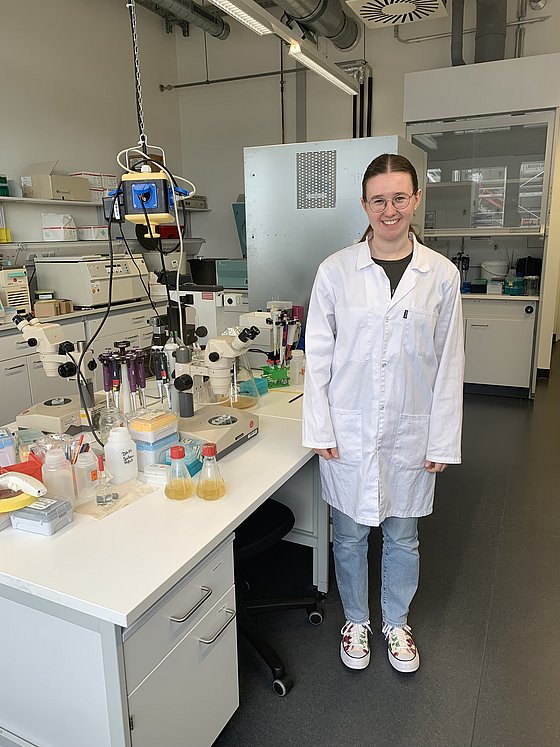
Understanding genes with Paramecium - internship with us!
Are you interested in an exciting internship in the field of molecular cell biology and microbiology? Would you like to gain valuable experience in a modern laboratory with an open-minded team?
Then come and join us! We are the Simon research group at the university of Wuppertal. We conduct research on genetic and epigenetic mechanisms by which ribonucleic acids influence gene expression, development, heredity and evolution. In this way, we make an important contribution to basic research, as our findings can be applied in medicine, for example.
To give you an insight into an internship with us, we would like to introduce you to one of our interns.
This ➜ is Ida.
Ida completed a six-week internship in our working group. The 20-year-old is actually studying biology in Strasbourg as part of a Franco-German bachelor's degree, but she did the internship on a voluntary basis to gain experience and deepen her practical knowledge.
What are your tasks in the working group?
"There are actually no real obligations. As I'm doing the internship voluntarily, I can help out a bit everywhere and just see what comes up. This includes, for example, lab work, where you have to empty rubbish bins or load the dishwasher. That's the equivalent of making coffee in the office [laughs]. But I also work on larger projects."
What kind of projects are they?
"In our lab, we work a lot with Paramecia. These are unicellular organisms of the genus Paramecium that can be seen under a microscope and have a rapid division rate. This makes them well suited as model organisms.
In the case of Paramecia, for example, we conduct research using immunostaining methods. In other words, we try to detect different biochemical markers in the cell nucleus, for example on acetyl or methyl groups. This allows us to investigate which modifications in Paramecium are involved in switching genes on and off. We can then see whether there are parallels or differences to other tissues, i.e. from other organisms such as humans, and what effects these modifications have."
Do you carry out these projects all by yourself?
"After initial instruction, I'm allowed to do a lot on my own. However, I always have a contact person on site, especially Dr Franziska Drews, who does a lot of research on Paramecia at the university, but also Prof Dr Martin Simon, who heads the research group. The rest of the team is also very nice and helpful, so there's always someone to turn to."
So would you describe the working atmosphere as pleasant?
"Definitely in any case! The team is relatively small, so it's easy to get to know each other and integrate. This creates a humorous atmosphere and more personal contact, so you really become part of the team."
Would you recommend the internship overall?
"Definitely. In general, you should take the opportunity to further your education through internships, both for your own experience and for the benefit of your studies."
What advice would you give other students for an internship?
"It's definitely a lot of fun, but you also need a lot of patience. Sometimes things don't work straight away or some tasks have to be repeated. But it's a good way to overcome various difficulties."
Pictures: Ida Schmitt, Corinna Stärk
Paramecia: Single-celled organisms that divide quickly and are therefore ideal model organisms for research.
Immunostaining: A method used to visualise certain structures on proteins or DNA by labelling.
Acetyl and methyl groups: Small chemical groups that can attach to DNA or proteins. They influence which genes are "switched on" or "switched off" - without changing the actual DNA sequence.
Epigenetics: Research area that investigates how such chemical changes can control gene activity and heredity.

Ida pipettes a nutrient solution with paramecia.
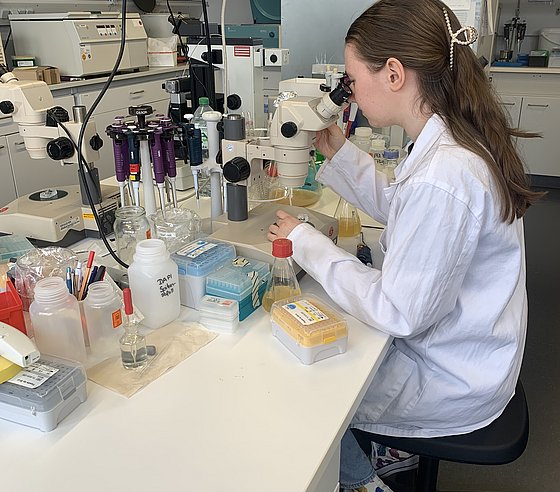
Ida is looking for Paramecia through the binocular microscope.
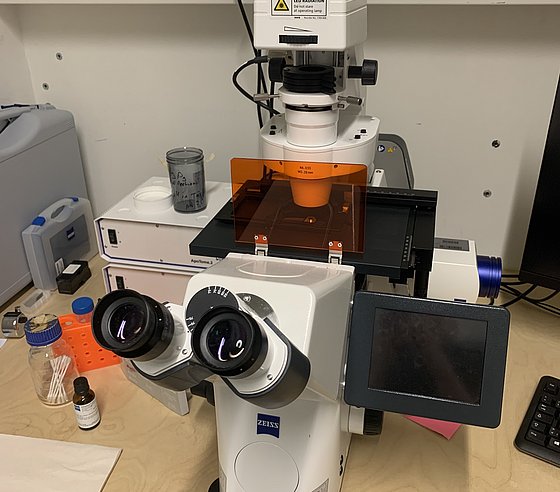
The fluorescence microscope is one of the tools Ida uses in her work.
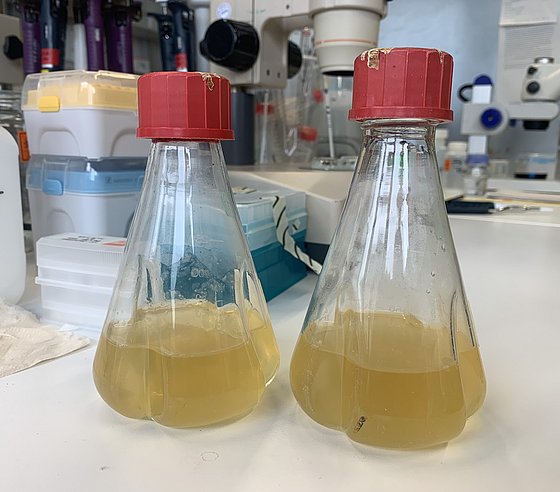
The nutrient solution is used for cultivating and storing the living Paramecia.
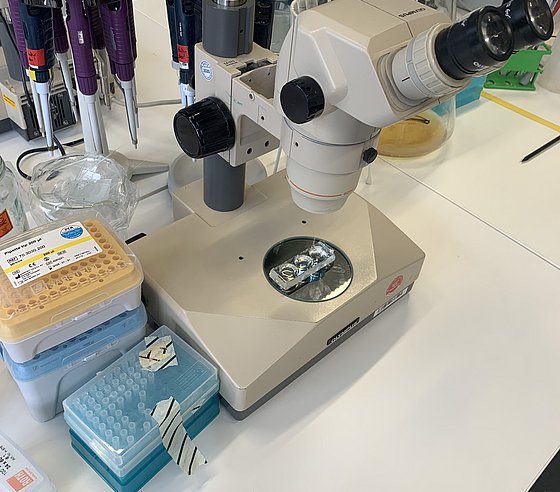
The binocular microscope is used to make the tiny Paramecia visible.
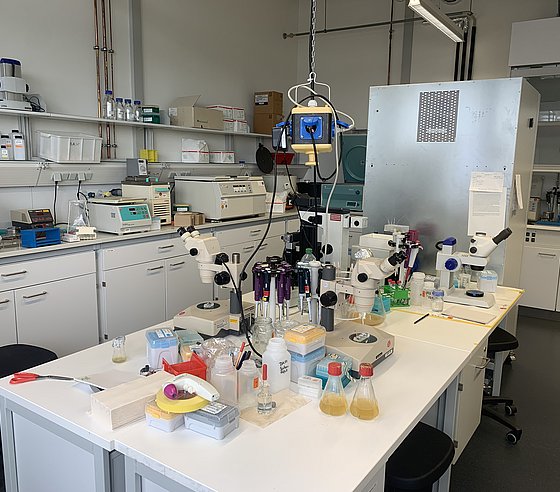
Ida's workstation
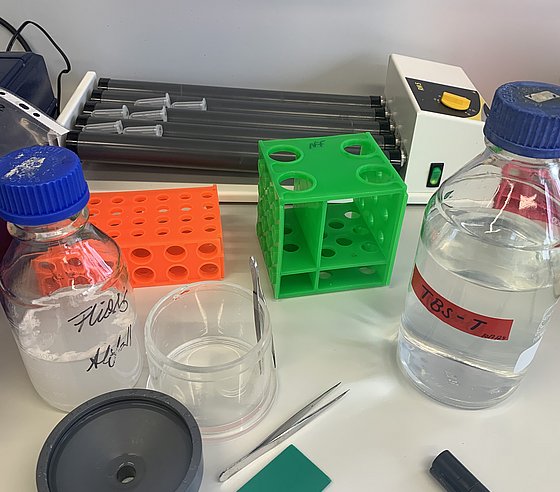
Another workstation in the laboratory
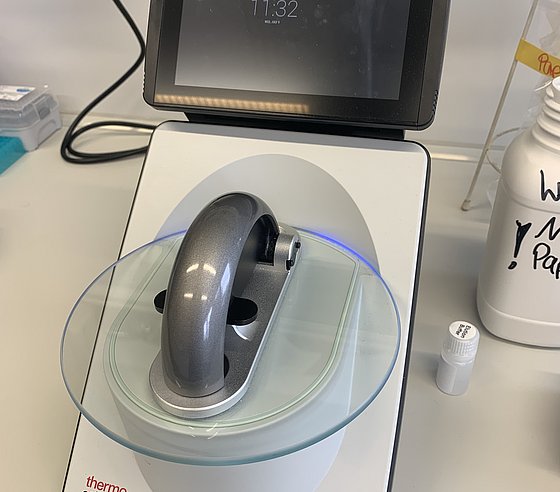
The lab is equipped with a wide range of modern instruments.
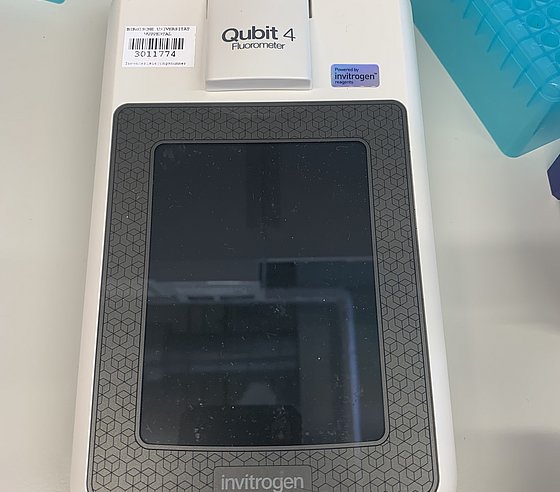
A fluorometer measures the concentration of biological molecules such as DNA, RNA, and proteins.
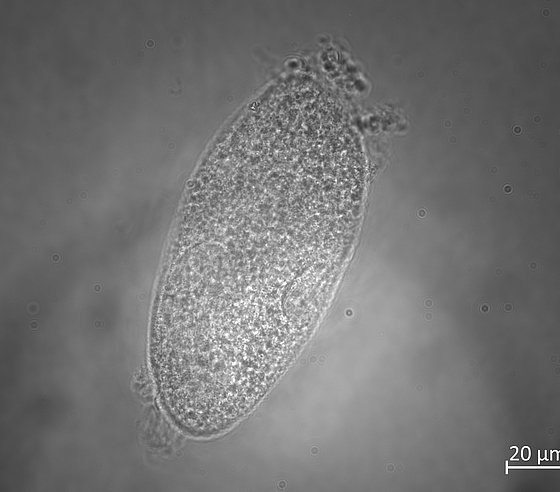
Microscopic view of a Paramecium.
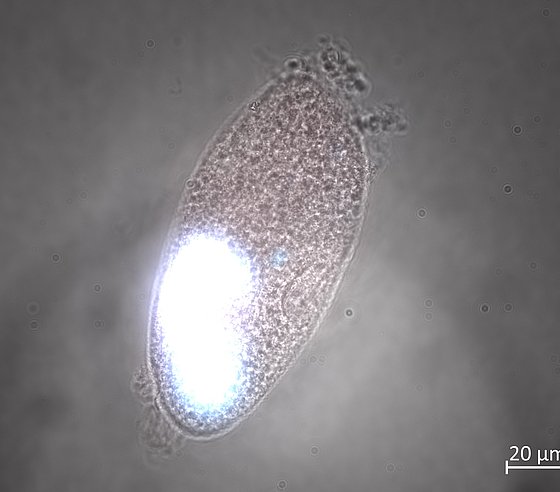
Fluorescent marker in a Paramecium.